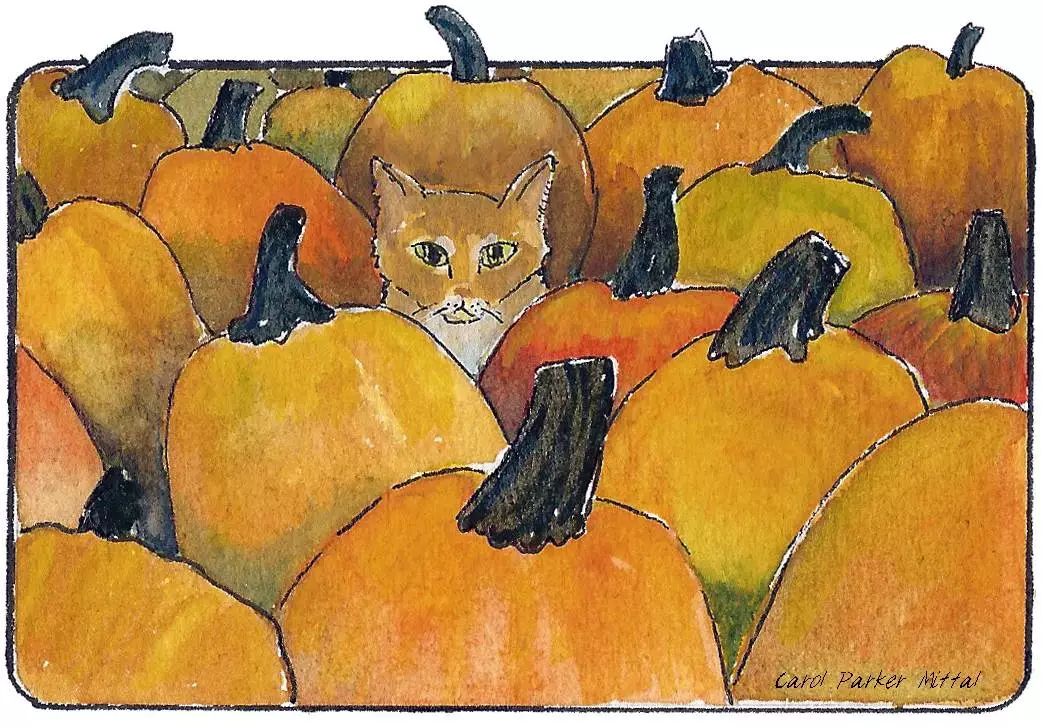As Halloween approaches and pumpkins become ubiquitous in households, pet owners may find themselves questioning the safety of this popular seasonal fruit for their furry companions. With an estimated 40 million pumpkins expected to fly off UK store shelves this autumn, it’s crucial to delve into the benefits and potential hazards of pumpkins for pets. Although pumpkins often evoke thoughts of festive decorations and delicious treats, they can present certain risks that every pet parent should be aware of.
One of the most delightful aspects of pumpkins is their nutritional profile. Rich in vitamins A and C, as well as essential minerals like potassium and iron, pumpkin flesh and seeds can actually be beneficial for pets. The high fiber content can promote digestive health, making pumpkin a valuable inclusion in your pet’s diet. For animals suffering from gastrointestinal issues, this natural remedy can serve as a gentle way to alleviate symptoms. Furthermore, unlike the typical sugary treats found around Halloween, pumpkins offer a wholesome alternative that can enhance your pet’s diet year-round.
In fact, pumpkin puree can be just as nutritious as fresh pumpkin and offers ease of use. It can be added to pet food or offered as a treat, making it a versatile choice for pet owners. However, caution is imperative. It is essential to choose pure pumpkin puree without additives and artificial sweeteners, particularly xylitol, which is notoriously toxic to dogs. This ensures that your pet receives only the health benefits of pumpkin without any harmful substances.
Despite their many advantages, pumpkins can also pose risks, especially in their whole form. While the flesh is safe, the pumpkin’s stem and rind can be problematic. Many pets tend to explore new items using their mouths, and the fibrous texture of the rind can lead to choking hazards. Even if a pet successfully chews the rind, it may become lodged in the digestive tract, necessitating emergency veterinary intervention. Thus, pet owners should supervise their animals closely when pumpkins are present and avoid leaving them unattended with whole pumpkins.
Moreover, certain pumpkin treats can be dangerous. Carved pumpkins, for instance, may harbor mold, and popular pumpkin-flavored foods, like pies, often contain sugars, spices, and fats that are not suitable for pets. Ingredients such as salt and oils can further complicate the situation, leading to digestive distress. Hence, owners must exercise diligence when considering pumpkin-based treats, ensuring that they are safe for consumption.
As we navigate the Halloween season, it’s important to remember that pumpkins aren’t the only nutritious autumn options for our pets. Other seasonal foods like butternut squash and sweet potatoes can make excellent alternatives. Providing a diverse array of healthy foods can enhance your pet’s diet while keeping mealtime interesting. These options are not only safe but also come with their own set of health advantages, similar to those found in pumpkin.
Pumpkins can undoubtedly provide nutritional benefits for pets, but they are not without their dangers. Pet owners must remain vigilant about what parts of the pumpkin their animals can safely consume. By offering pure pumpkin or pumpkin puree without additives, and ensuring safe handling, you can partake in the festive spirit of Halloween while caring for your furry friends. Always consult with a veterinarian if you’re unsure about including a specific food in your pet’s diet. With proper precautions, Halloween can be a delightful time for both humans and pets alike.
